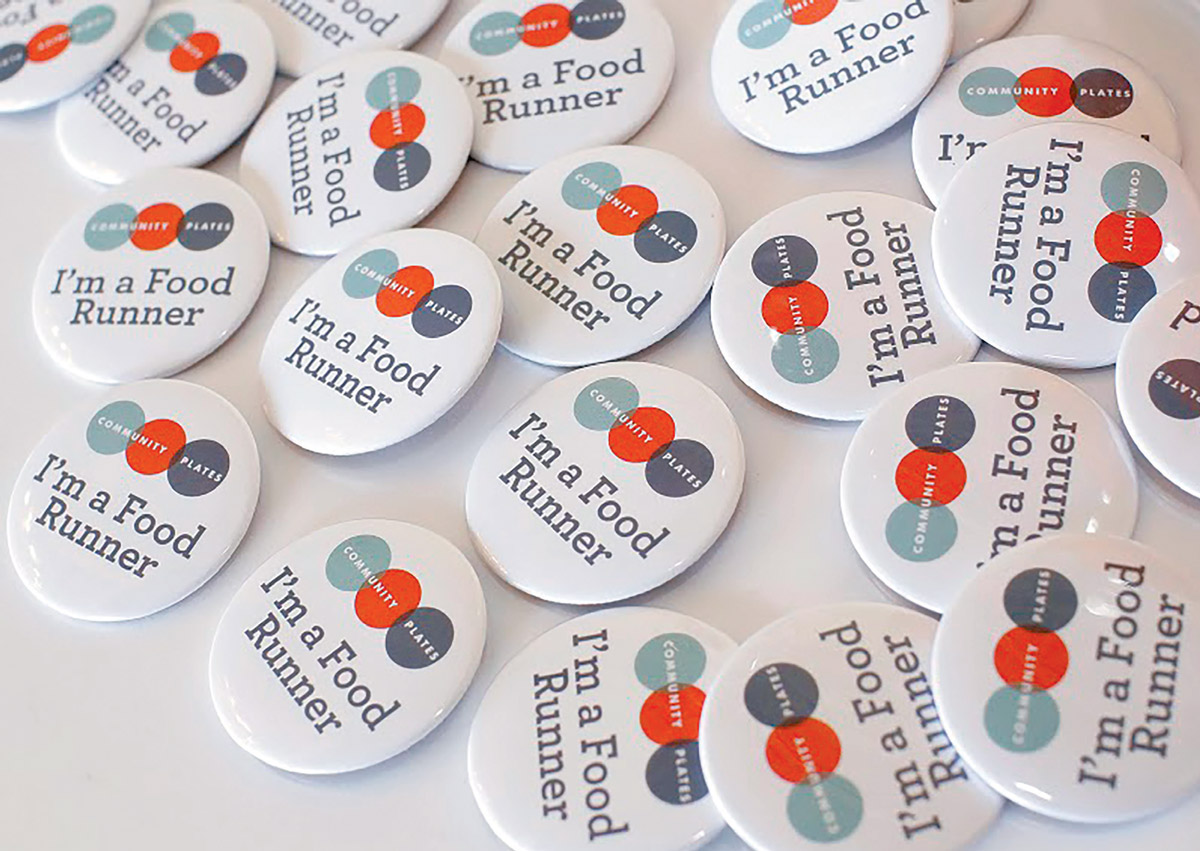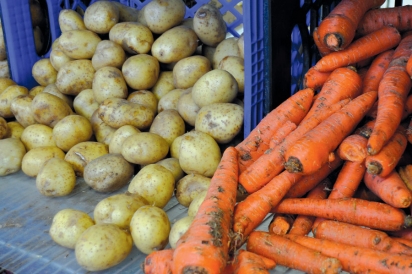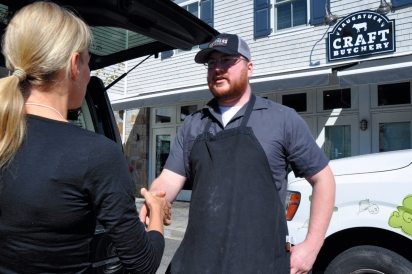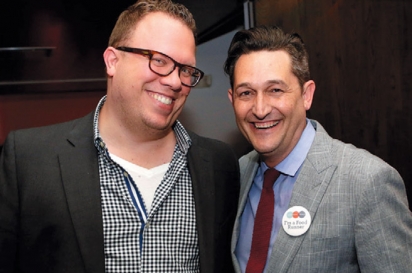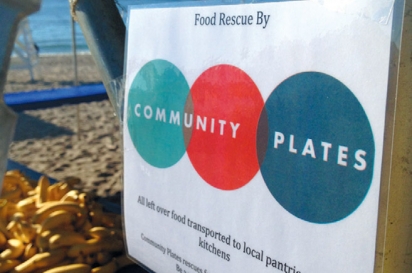Community Plates Ending Food Insecurity One Meal at a Time
Kevin Mullins, Executive Director of the national nonprofit Community Plates, lives in Fairfield County. When his daughter was in 4th grade, she began asking for larger lunches. She confessed that she and her friends were bringing food for two classmates who, “as she put it, didn’t have enough food at night.” Simultaneously, his high-school-aged sons were rapidly spending money on their lunch cards, also on food for friends in need.
While it’s estimated that 25-30% of the U.S. is food insecure, the USDA says that 30-40% of the nation’s food supply goes to waste. Although Mullins knew this, seeing it in his own fairly affluent community surprised him. He’s since discovered that more than 100,000 people are food insecure in Fairfield County, and between Hartford and New Haven, more than 240,000 cannot afford the food they need. So when his friend, Jeff Schacher, a software developer specializing in cloud-based solutions for restaurants, approached him with an idea to leverage their tech expertise to salvage food from going to waste, Mullins agreed to help.
They completed a job profile for a director and interviewed candidates, but six months in, “Jeff said, ‘You know, Kevin, I think this profile is you exactly,’ and of course, by this point, I did feel that my skill set, combined with Jeff’s, made for a really strong leadership team.” They spent the next few months “making sure we weren’t reinventing the wheel,” and in January 2011, Community Plates launched with Mullins at the helm. “I consider it a somewhat elaborate trap at this point,” he says.
Five years on, the nonprofit, whose goal is to end food insecurity in the U.S., is 1,656 volunteers strong and has rescued 12.6 million meals nationally in seven cities from Ohio to Louisiana. Just over 10 million of those meals, worth $25.8 million, have been rescued in Connecticut, with only a couple hundred volunteers across Fairfield, Hartford, and New Haven.
Mullins attributes the success of Community Plates to his staff, many of whom work for a stipend within the $400,000 annual budget, and to the technology that runs it all. Their web-based app, GoRescue, matches availability with need and allows volunteer food runners to pick up and deliver to places like churches, soup kitchens, and educational programs. In a traditional scenario, onboarding volunteers and connecting them with opportunities takes time, and interest wanes. With Community Plates’ ondemand, self-scheduling platform, new volunteers are rescuing food the next day, and a single coordinator can now easily manage 1,000 volunteers instead of the typical 100. “We believe this model of direct-transfer food rescue is the most efficient and most promising solution to ending hunger,” Mullins says. And because the platform eliminates sorting and warehousing in favor of direct delivery, perishables like meats, fruits, and vegetables rescued in the morning are often on a dinner table that night.
One of the New Haven food runners is Carolyn Kennedy. Kennedy used to spend Saturdays at the mall. Then, Lori Martin, now the New Haven site director for Community Plates, brought food to Kennedy’s Dixwell Avenue church. Kennedy, who had never volunteered, agreed to cover Martin’s food run while Martin was out of town. Nearly a year later, Martin hasn’t asked for her route back, and Kennedy continues to spend Saturdays in her church cafeteria, giving away food donated by a large grocery chain after it’s reached its sell-by or best-by date, which are unregulated indicators not directly related to whether an item is still safe, delicious, or nutritious.
“I give up my day, but it helps me, too,” Kennedy says. “So many people are in need, and they can’t believe the food is free. There are all these things people weren’t able to afford, like raspberries, strawberries, and for me, asparagus. I’d never eaten asparagus in my life until Community Plates.”
For Mullins, this gets to the heart of what makes Community Plates so effective. “We’re happy for anything the government does,” he says, “but it’s not going to be the government who solves this problem. It’s going to be people’s neighbors, people who care enough about those three blocks away who are in poverty.”
The city of New Haven, however, is stepping up. Three months ago, the New Haven Food Policy Council, with funding from the Kendall Foundation, hired Joy Johannes as Food System Policy Director (one of only 20 in the nation) in a city in which 40% of residents are food insecure. Johannes says that, because her position is within city government, it “allows us to have the leverage to make policy changes and to have greater impact as we work collaboratively with people involved in grassroots efforts.” Johannes and her team are contacting more than 1,100 food retailers in the city to advance reclamation efforts. They use the website Get Connected New Haven to direct those in need to nutrition programs, farmers markets, and other food sources, and the plan is, in part, “to bulk up the capacity of Community Plates” to prepare for increased food reclamation.
Mullins looks forward to growth and adds that Community Plates will launch in seven new cities around the country by the end of the year, and they’re developing an iOS app to further streamline efforts. But his heart and home are in Connecticut. “There’s something within me that doesn’t want Columbus to be our fastest-growing site. It excites me as a CEO, because it means we’re having success in other places, but I want us to lead the way here.” Once they launch in Waterbury, where they’re actively looking for leadership, Mullins says, Connecticut will “have the opportunity to be a shining star in the country to demonstrate what it looks like for a whole state to get on board and say hunger in the U.S. doesn’t make any sense. So let’s get it done really well here in Connecticut to get it done for the rest of the country.” Interested volunteers and contributors can visit CommunityPlates.org for more information.
> Community Plates: 27 Ann St., Norwalk; 800-280-3298


